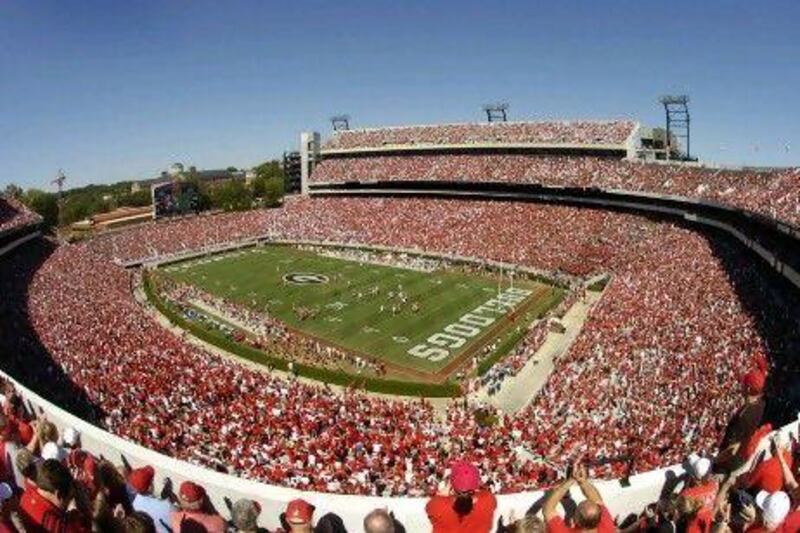As we speak, the "i"s are being dotted, the "t"s crossed and the "$"s printed for a new extravaganza certain to become the second-most popular sports event in the United States.
Like, overnight.
We Americans love our football, and we love our tournaments. You might have heard of one: the NFL's 12-team play-offs that culminates with the Super Bowl. It outstrips the next most avidly followed event by, as we are fond of saying, a country mile (or 1.6 kilometres, and then some).
The nation's other preferred team sports - pro and college basketball, big-league baseball, hockey - conduct extended play-offs to determine a winner.
And now the lone holdout - college football - is about to join the play-offs party.
Since the dawn of time, college football's season has been followed by a jumble of bowl games, most of which have no bearing on identifying a champion.
After the bowl games were played, designated "experts" would examine the results, between their New Year's parties, and vote, often based on vague criteria, for a No 1.
Late in the 20th century, football authorities stumbled across the existence of computers, and combined them and their cold data with the chorus of human voices, which served only to increase the disharmony.
Then there was born the BCS Championship Game. From 1999 on, men and machines have coalesced to choose two teams for what amounted to a micro-mini play-off, sometimes getting it right but almost as often leaving a worthy contender standing on the sidelines.
The masses remain dissatisfied. They clamour for a tournament that would replace the bowls, which have ballooned in number to 35, some of which involve undeserving foes with more defeats than victories.
Proposals for a field of eight or 16 teams went up the flagpole, but there was no saluting by significant parties, notably university presidents. Many are concerned that their beloved hyphenated euphemism for players, "student-athletes", has flipped to "athlete-students" and would rather distance their play-offs from the NFL's.
Similar worries relate to the injustice of a prolonged post-season that would enrich athletics programs, administrators, TV networks, coaches and ticket brokers while not earning the players, as we are fond of saying, one thin dime (or 36.7 fils).
But the presidents do not call the shots. In fact, nobody does, which partly explains the chaos affecting this rudderless sport, remindful of the equally chaotic horse racing and boxing. An outfit called the NCAA oversees championships in the 38 other men's and women's sports but, oddly, not football, the most popular college sport.
The presidents do have a say. And because they are being told by the money managers at their schools that extra revenue from play-offs will help pay for those 38 sports that usually do not generate profits, a peace plan has emerged.
It calls for a four-team tournament that is inevitable and which certainly will be a huge attention-getting device.
The masses should be careful what they wish for. No regular season in American sports carries more importance than college football, and it will become devalued, if only slightly, with a four-team deal. (Highly regarded teams will be able to lose a game and, often, still make this new final four.)
Further, whatever formula is hammered out for selecting the quartet - committee? computers? highest bidder? darts? - is sure to cause burning and looting, particularly among fans whose squads just miss out.
So, prepare.
And beware of, as we are fond of saying, this 800-pound (363-kilogram) gorilla.
[ sports@thenational.ae ]
Follow us
[ @SprtNationalUAE ]





